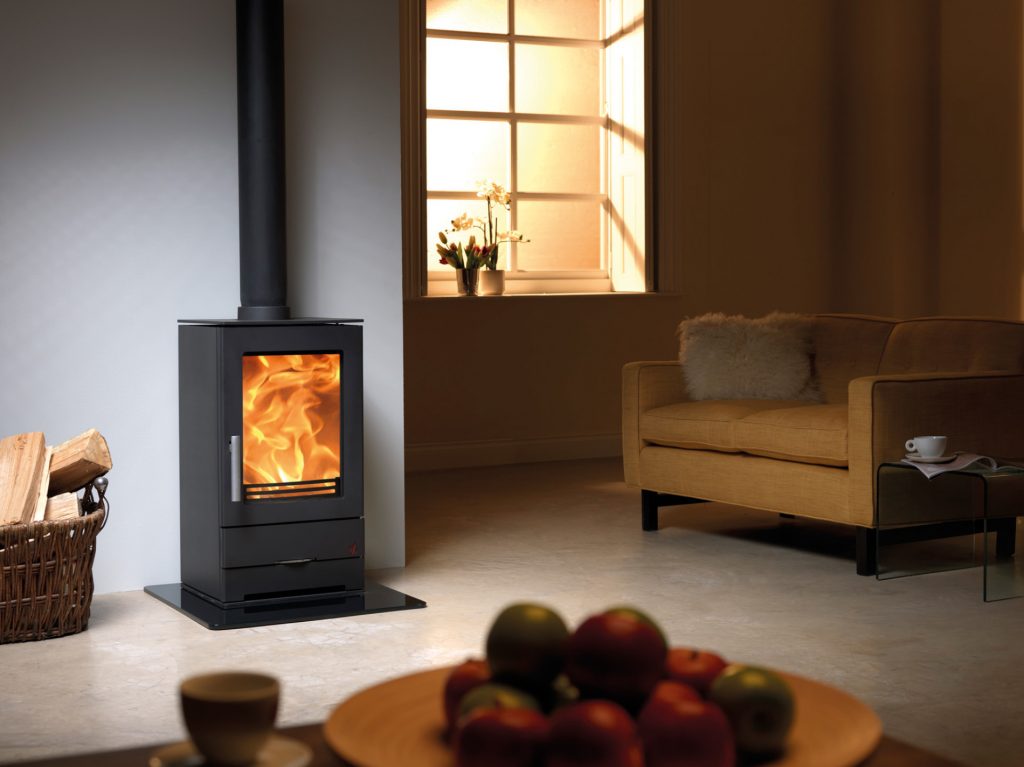We thought it best to get the main headline across in response to the disgraceful reporting of the government’s “wet wood ban” by some areas of the UK media. Those who follow our blog will be aware we have written about the pitiful standard of reporting when it comes to wood-burning stoves and air pollution. So, rather than publish an article of our opinion let us take a look at the truth behind the headlines.
Is there a UK wide ban on wet wood on the way?
Before we dig deeper into the misleading headlines regarding the use of wood-burning stoves going forward, this simple headline shows the poor standard of reporting. This is not a UK wide ban on wet wood; it is a ban in England which will come into force next year for large manufacturers of wood and in 2022 for smaller manufacturers. The Welsh and Scottish governments are currently in middle of their own consultation period and will announce their findings fairly soon.
Will wood-burning stoves be banned? NO, NO, NO
The simple answer is, no. The government goes as far as to confirm that there will be no ban on wood-burning stoves so why we have to experience some of the dramatic and misleading headlines is a mystery. Do certain areas of the media and the political world have their own agenda?
Do stoves release emissions of PM2.5?
For those unaware, fine particulate matter (PM2.5) is very small particles in the air which can find their way into the body’s lungs and blood. Any combustion process will release a degree of emissions into the atmosphere although the stove industry is leading the way with regards to clean air emissions.
Wood-burning stoves and open fires
One particularly misleading article on the BBC website perfectly illustrates the project fear operation undertaken by some parties. To quote one paragraph: –
“
Around 1.5 million homes use wood for fuel across the UK, however burning wood and coal in open fires and stoves makes up 38% of the U.K.’s emissions of PM2.5.”
Did you notice, the comment starts with a focus on wood fuel and then hey presto we have wood and coal brought under the same umbrella to justify the 38% of total emissions figure. Well, when you consider that an open fireplace is less than 30% efficient compared to a modern day wood-burning stove which can be upwards of 80% efficient, is it fair to group these two combustion processes together? The simple answer is that you are comparing apples and pears but some in the media believe that if you say this often enough, people will simply start believing it.
What are the new regulations?
Under a mandatory certification scheme, the Department for Environment, Food and Rural Affairs (DEFRA) will bring in new regulations:-
Between now and 2021
Nothing will change with regards to the availability of both dry and wet wood. However, there is no stove manufacturer in the UK (or the world) who would in any way shape or form, condone or encourage the use of wet wood with their equipment. Why would they?
Wood with a moisture content of more than 20% is highly inefficient when it comes to creating heat. In this scenario a huge percentage of the energy created by a stove is used to burn the moisture and dry the wood. This makes this type of fuel extremely inefficient and it also creates a tar like material which can block chimneys, damage flues and in some cases result in chimney fires. So, while the government is supporting the use of wood fuel with a moisture content of 20% or less, this is something the stove industry has been pushing for decades!
From 2021
Large manufacturers of wood, selling in volumes of less than 2 m³, will only be able to sell dry wood with a moisture content of 20% or less.
From 2022
Smaller manufacturers of wood, selling in volumes of less than 2 m³, will only be able to sell dry wood with a moisture content of 20% or less. The government has given more time to smaller manufacturers who may be more dependent on wood fuel sales in these volumes.
So, from 2022 onwards all dry wood sold in the UK in volumes of less than 2 m³ will have moisture content of 20% or less.
Stove technology
Many of the facts relating to modern day stove combustion technology are lost in the myriad of political and eco-friendly opinions which seem to dominate the world of media. Let’s not forget:-
Eco-design 2022
Under a scheme which is supported by and was indeed co-introduced by the stove industry and connected regulatory bodies, from 2022 onwards new stoves will need to be more efficient and more eco-friendly. This will reduce emissions, the focus of this week’s announcement by the UK government, and help to dispel some of the misreporting and misinformation in the public domain. However, did you know that many stove manufacturers are already eco-design 2022 compliant a full two years before the introduction of the directive?
Yes, the majority of stove manufacturers are already compliant with the eco-design 2022 regulations. How many other industries do you know of who are willing to invest the time, effort and significant amount of money to becoming compliant two years before new regulations come into force?
One further note of clarity, even when the eco-design 2022 regulations come into effect this will not impact non eco-design 2022 stoves acquired before that date. Therefore, as long as you use the correct fuel there is no need to replace your stove or any potential regulatory issues.
Policing the ban on wet wood
As with so many political endeavours, the devil is very often in the detail and this week’s announcement is no different. While councils are likely to police the more visible retailers of wet wood such as garage courts, will they actually be able to enforce the new regulations on the general public?
Well, the first thing to say is that the regulations do not include the right to enter private property to check for wet wood. We know that many people will use discarded wood found in the countryside as their fuel of choice. Against all recommendations by the stove industry, some people do still burn wood with a moisture content of more than 20%. There is also the fine print which many believe will see sales of wet wood continue in some parts of the country, sold under “woodwork supplies”.
We live in a world where local authority budgets are under extreme pressure and while there is no doubt the new regulations have the best intentions, how will they ever be policed?
Supply of dry wood
When the use of wet wood is fully phased out this will create significant demand for dry wood as the industry tries to catch up. Ironically, this will likely require an increase in dry wood import levels and the various emissions this will create – in direct contrast to the UK government’s target of reduced emissions. Has this irony been lost on the UK authorities?
Smokeless fuels
The regulations announced this week also include a ban on coal (often referred to as house coal) which has been shown to have a significant impact on air quality. While this should not be of relevance to wood-burning/multifuel stove owners, there will also be further restrictions on smokeless fuels. From 2021 the sale of smokeless fuels, in relatively small quantities, with sulphur content above 2% will be banned. As many larger coal merchants will require additional time to adjust their operations, large amounts of smokeless fuel with sulphur content above 2% would be phased out from 2022.
Conclusion
Despite the raft of dramatic headlines there is no ban on wood-burning stoves (or multifuel stoves come to that) and this is something the government specifically mentioned in this week’s announcement. However, even this direct message from the government failed to hit home, with many media outlets looking for that dramatic headline.
The phasing out of wet wood makes perfect sense, the stove industry has been pushing this for decades, and focus on smokeless fuels with reduced sulphur content also complements the stove industry’s long-term advice. We appreciate that many of these headlines are worrying but any impression that wood-burning/multifuel stoves will be banned in any way shape or form is simply wrong.
Enjoy the heat from your wood-burning stove this evening, a little more relaxed and unconcerned about misleading media headlines…..

